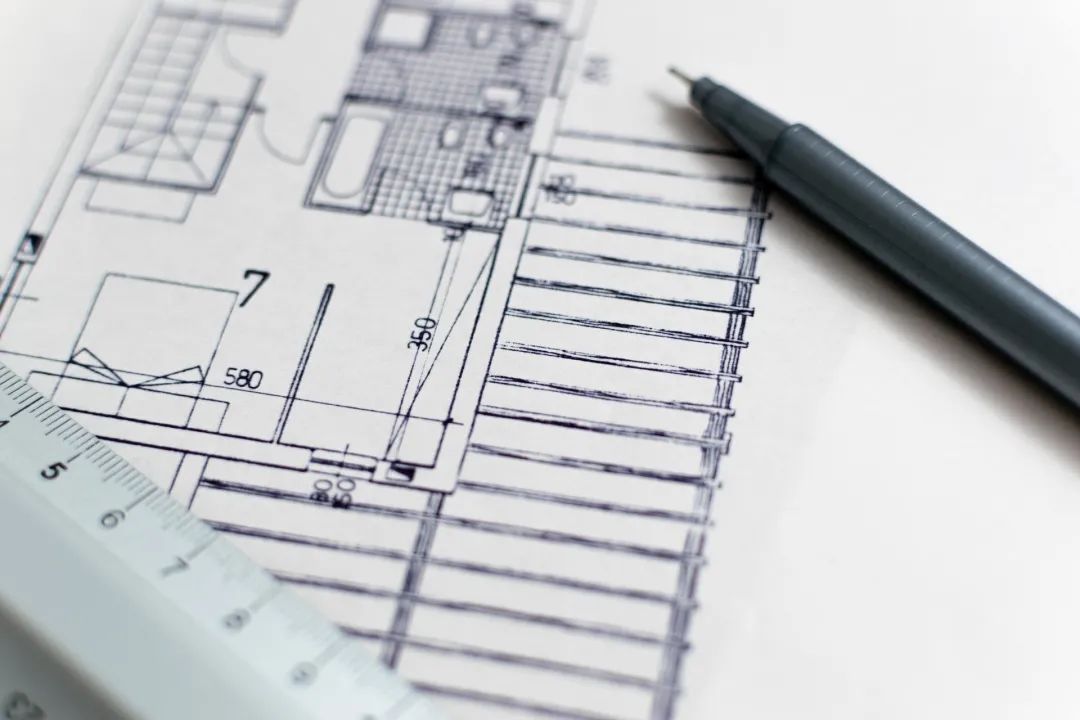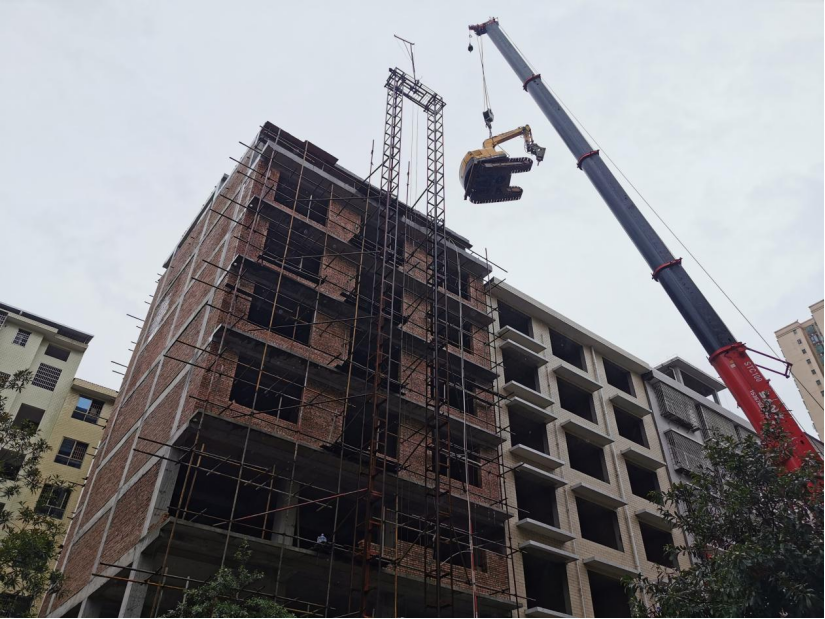From management to release, the initiative of the market subject has been greatly stimulated”, introduced by the relevant person in charge of the Municipal Bureau of housing and urban rural development.
In order to further improve the level of construction technology and construction efficiency, improve the quality and safety of housing construction, and promote energy conservation and emission reduction, Shenzhen took the lead in embarking on the only way for the transformation and upgrading of traditional construction industry – vigorously developing prefabricated buildings.
As the largest prefabricated public housing project in China, Changzhen project can provide 9672 residential units.
Shenzhen has made outstanding achievements in the development of prefabricated buildings, thanks to the innovation of government management service model.
The Changzhou project, known as the “net red” affordable housing, is not only the construction of 8 academicians, but also the largest prefabricated public housing project in Shenzhen.
Adhering to “incubation, cultivation and key guidance”, we have strengthened the creation of prefabricated construction industrial base, forming a multi-level echelon from industry leaders to growing enterprises.
As of the third quarter of this year, the total construction scale of prefabricated buildings in Shenzhen had reached 47.31 million square meters, equivalent to the construction area of 100 Ping An financial centers.
The number of national prefabricated construction industrial bases ranks second in large and medium-sized cities, accounting for 9.8% of the total national industrial bases.
In a house, the construction of light steel keel partition system is under way..
“As early as 2009, Shenzhen issued the country’s first local standard for prefabricated buildings, the technical code for prefabricated integral reinforced concrete structures.
Through the opportunity of demonstration city construction, relying on its own regional advantages, industrial characteristics and technical foundation, it has explored and formed a demonstration led Shenzhen model, driven and led the development of prefabricated buildings in the Pearl River Delta, and ranked the first echelon in China together with Beijing and Shanghai.
Shenzhen has built the first batch of 7 assembly building training bases in the province, which has attracted industrial workers from Dawan district such as Guangzhou, Dongguan and Zhuhai and many provinces and cities to participate in the training.
The reporter saw at the scene yesterday that about 90% of the project has been completed and decoration is under way.
This means that the interior decoration of the residence can also assemble standardized components like “LEGO”, greatly reducing the emission of construction noise, dust pollution, harmful substances and construction waste.
It reflects the different stages and development context of Shenzhen’s promotion of prefabricated construction, and provides a valuable practical sample for the development of prefabricated construction in China.
▲ the report of the Seventh Party Congress of Shenzhen on the Changzhen project proposes to lead green development with carbon peak and carbon neutralization.
Shenzhen Campus of Harbin University of technology, longyueju phase III, Vanke Cloud City…
Newly started prefabricated buildings accounted for 44.8% of the new construction area.
▲ the “service-oriented” government of Pingshan yanzihu International Convention and Exhibition Center escorts the industrial development.
The construction industry has made great contributions.
In April 2021, Shenzhen’s first local standard for prefabricated Decoration – Technical Specification for indoor prefabricated decoration of residential buildings was officially released.
A large number of local enterprises have gone out of Shenzhen, to the whole country, and even to the competitive world stage.
In 2017, Shenzhen was recognized as one of the first batch of national prefabricated building demonstration cities by the Ministry of housing and urban rural development, and the first national prefabricated building demonstration city in Guangdong Province.
For enterprises in the initial stage, take the initiative to provide “customized” prefabricated building training services.
The reporter saw that the indoor ceiling of Changzhen project adopts local ceiling, integrated return light groove and pipeline design, so as to provide space for water and electricity entering households and fire sprinkler pipelines.
Compared with 1.09 million square meters in 2016, the newly added prefabricated building area in the year increased by 42 times in five years, and the planning and construction objectives issued by the state were completed five years ahead of schedule.
Longyueju phase III is the first affordable housing project with large-scale application of prefabricated construction in China; The Shenzhen Campus project of Harbin Institute of technology is the first Luban Award project for prefabricated buildings in China; Hanjing financial center is the world’s highest core tube external all steel structure building; Vanke Yuncheng is the first large-scale application of prefabricated construction of all clear water prefabricated exterior walls…
The Changzhen project is only an epitome of the development of prefabricated buildings in Shenzhen.
Vanke Group’s prefabricated building area in 65 major cities in China has exceeded 200 million square meters, ranking first in China; One belt, one road, is built in Papua, New Guinea and participating in the “one belt and one road” school construction project.
CIMC exports “made in China” to the world with modular buildings, and has completed more than 100 Hotel and apartment construction projects abroad.
The implementation scope of prefabricated buildings in Shenzhen has been 100% implemented by residential buildings, apartments and other residential buildings, and expanded to hospitals, schools and other public buildings, factories and other industrial buildings with a construction area of 30000 square meters and above.
The government actively serves to stimulate the endogenous power of enterprises.
So far, 15 series of policy documents have been issued to build a policy system of rigid constraints and incentives.” the relevant person in charge of the Municipal Bureau of housing and urban rural development said.
From residential buildings to public buildings, Shenzhen has created a number of representative and exemplary prefabricated building projects.
The relevant person in charge of Shenzhen housing and Construction Bureau said that in recent years, Shenzhen has vigorously developed prefabricated buildings, with a total scale of 47.31 million square meters.
At the same time, the combination of management and service provides the whole process of technical services.
Workers’ training is also extended to Baise, Hechi and other areas in Guangxi through “Counterpart Assistance”, which reflects good radiation effect and social responsibility.
The next step will enter the stage of linkage commissioning and special acceptance.
Huayang International and Zhubo design have been successfully listed with their accumulation in the field of prefabricated construction.
Shenzhen is accelerating the high-quality development of new building industrialization represented by prefabricated buildings, with the highest, best, best and strongest benchmarking, so as to comprehensively drive the whole industrial chain of the construction industry to develop in the direction of greening, industrialization, intelligence and internationalization.
In order to provide talent support for the sustainable development of prefabricated buildings, Shenzhen successfully created the first and only professional and technical qualification of prefabricated buildings in China in 2017, filling the gap in the evaluation and cultivation mechanism of prefabricated buildings talents in China.
By 2020, 379 technicians have obtained the title of prefabricated building in Shenzhen, and the first batch of senior engineers of prefabricated building have been born.
▲ the prefabricated buildings in Pingshan new energy automobile industrial park extend to hospitals, subway stations and other livelihood fields.
Not only the main structure adopts prefabricated buildings, but also indoor decoration, trying to build a benchmark project in the field of domestic prefabricated interior decoration.
The development of prefabricated buildings in Shenzhen is firmly in the forefront of the country.
The national infectious disease clinical medical research center, Shenzhen assembly building, has created several first national Shenzhen, and rapidly developed from a frontier agricultural county to a charming and dynamic international innovation city.
The whole bathroom of South China building materials has traveled all over the world with ocean going ships.
“With the continuous expansion of prefabricated buildings and the improvement of the implementation capacity of the construction unit, in 2018, the implementation responsibility of the construction unit will be strengthened according to the requirements of release management service, and the municipal and district competent departments will strengthen the in-process and post inspection.
It basically covers all building types, and continues to expand to prefabricated subway stations Promote the application of bridges and other transportation and municipal infrastructure.
Formulate the implementation path of carbon peak, and strive to be at the forefront of the country in carbon peak and carbon neutralization.
Take the “service-oriented” government as the main line and actively provide public welfare services for enterprises.
During the 13th Five Year Plan period, six projects were rated as the first batch of model projects of the evaluation standard for prefabricated buildings by the Ministry of housing and urban rural development, accounting for 11.5% of the total in China; It has incubated 13 enterprises including Vanke Group, including national prefabricated construction industrial bases, 29 provincial bases and 31 municipal bases.
A high-level prefabricated construction expert team of more than 200 people led by academicians and masters was established, and technical services were carried out nearly 1000 times a year to ensure the smooth implementation of prefabricated construction projects.


